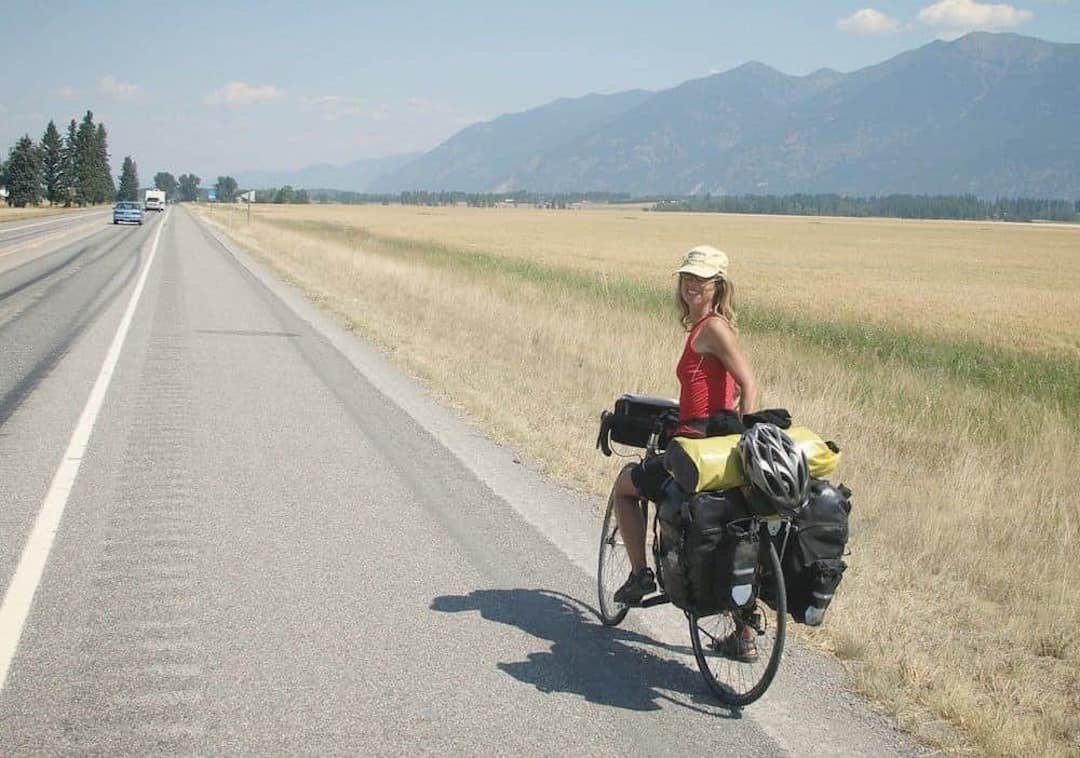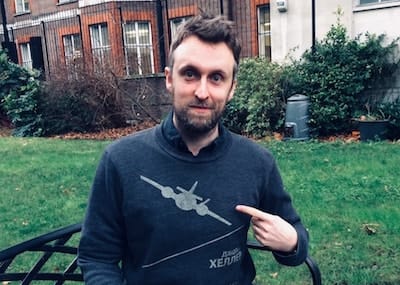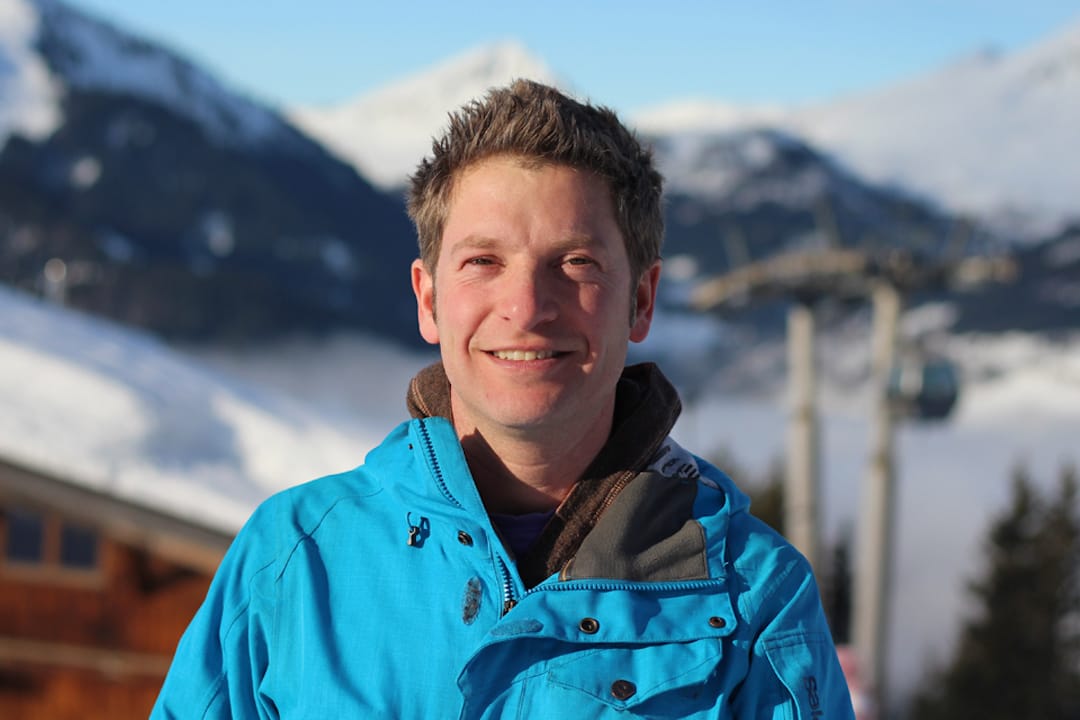This podcast is episode 4 of our #FlightFree2020 series. You can listen to the podcast, and access the rest of the series, at our podcast page.

This month we're talking to Kate Rawles, an author and adventurer who uses her adventures to be an ambassador for the environment. In 2006, Kate cycled the length of the Rocky mountains from Texas to Alaska, a journey called the Carbon Cycle in which she explored North American attitudes towards climate change. Then in 2016, she undertook the Life Cycle, which was an exploration of biodiversity along the Andes mountain range in South America, cycling more than 8000 miles from Colombia to Cape Horn. We start by asking Kate what her motivations were and why she came up with the idea of what she calls ‘Adventure Plus’
KATE:
‘Adventure Plus’ grew out of a concern at the chasm between what the scientists are telling us about climate change and other environmental crises, and any meaningful action on the ground.
I was working as a University lecturer teaching my students about this stuff, but I wondered if I could combine my passion for the environment with my passion for adventure and cycling as a way to reach wider audiences. So I started using adventurous journeys to raise awareness and inspire action on some of our biggest environmental challenges.
The first 'Adventure Plus' trip was the Carbon Cycle in 2006, where I cycled from Texas to Alaska following the Rockies, talking to people about climate change. I brought my stories back to the UK, turned it into a slideshow, wrote a book, and gave talks to loads of different audiences about climate change and what we can do about it.
FLIGHT FREE UK:
Kate’s book, the Carbon Cycle, is a great read and highly recommended, though currently out of print, so if you'd like a copy you can contact Kate via her website.
But though this journey was all about climate change, that’s only part of the picture in terms of the environmental challenges we face. Kate explains.
KATE:
10 years later I was still giving the Carbon Cycle slide show – combining adventure and big environmental issues was working. I also noticed that the climate change agenda was getting loads of attention which is great, but it was starting to eclipse other environmental issues, particularly biodiversity loss. We are wiping out species at around 1000 times faster than the background rate of extinction. About 1 million species are heading for extinction, and we've lost around 60% of our wild animal populations in less than my lifetime. Scientists are saying that biodiversity and the ecosystem crisis is every bit as challenging as climate change, but it's getting much less attention and less press, even though the two are intertwined.
"We are wiping out species at around 1000 times faster than the background rate of extinction. About 1 million species are heading for extinction."
Paul Erlich came up a neat equation, which is environmental impact = population x consumption x technology. The impacts that we are seeing are a side effect of our growth-based economics and our growth-based approach to life in general. The impacts are: climate change, biodiversity loss, and the shocking amount of plastic pollution and other kinds of pollution. They all have a common root and are interconnected. E.g. if you lose trees, you’re losing biodiversity as well as a carbon sink.
A lot of the language around the environmental crisis is the language of climate change, and while that’s a hugely important emergency, if we only talk about that and don’t link it to the ecological and biodiversity emergency then that becomes dangerous. So-called solutions to climate change can be very bad for biodiversity. An obvious example is using bio fuel rather than fossil fuel to power transport, but then you’re clearing lush, very bio-diverse areas, to grow monocultures of palm oil which is a biodiversity catastrophe.
FLIGHT FREE UK:
Kate has signed our pledge not to fly in 2020. But we’re quite careful not to say you can never fly again – taking a year off is about starting the conversation and changing the mindset away from jumping on a flight without thinking. The way Kate has done it is allowed herself one flight every three years, and she explains how she came to that decision.
KATE:
When I did the Carbon Cycle journey I flew across the Atlantic. At the time, I justified it by saying I’m going for three months, when I'm there I’m only going to ride my bicycle, and I'm doing it for climate change reasons. But that mindset is the problem. I was saying that my flight is special, mine is important. After that I decided I would put myself on a flight ration, and since 2006 I have flown no more than once every three years. I find people pay attention to that idea, because many people aren't prepared to quit flying for many reasons, but they could contemplate flying less. So I invite my audiences to think about also going on a self-imposed flying ration.
FLIGHT FREE UK:
So bearing in mind that ration, we asked Kate how she crossed the ocean for her second transatlantic cycling adventure?
KATE:
When I went across the Atlantic for my next adventure, not only was it a non-flying year, I was also very keen to do the journey with as little environmental impact as possible. It troubles me that the adventure and outdoors world often blanks out the problems around flying – a lot of it is about climbing mountains on every continent, or trips of that kind, and in the adventure community we’re not really yet having an open and honest conversation about the impacts of that. Most adventurers are in love with the planet yet we’re having a big impact. Let’s open up that conversation and see what we can do that's positive, because there’s loads that's positive about adventure.
"Most adventurers are in love with the planet yet we’re having a big impact. Let’s open up that conversation and see what we can do that's positive."
So I wanted to keep my impact down as low as possible, but I also really wanted to go to South America, because I wanted to focus on biodiversity and I love cycling in mountains, and where can you get both of those things in spades but in S. America? I decided the best way to get there was on a cargo ship. Carbon footprint specialist Mike Berners Lee did the number crunching and worked out that had I gone by plane the carbon footprint would have been roughly 2 tonnes CO2 equivalent, but per passenger for the cargo ship it’s 50kg. A huge, huge saving, and a fascinating way to travel.
It took 11 days from France to Colombia, and a month on the return leg, coming up the west coast of S.America then through the Panama canal and across the Atlantic. It’s a fantastic way to travel because it gives you time to change gear, both on the way there, and on the way back. Of course, you need time and money to travel in this way, but I would wholeheartedly recommend it.
FLIGHT FREE UK:
This is exactly what we've heard from other cargo ship travellers, such as Christine and Peter who wrote for our blog about their journey back from Singapore by cargo ship. They put it really nicely: 'had we flown, our bodies would have arrived home before our brains.' So it's not just about the environmental benefit, it can also be very worthwhile for us as travellers. You learn how the world connects and have a truly unforgettable experience, unlike a flight. Did Kate have ‘wow’ moments?
KATE:
There are many ‘wow’ moments from the cargo ship. Travelling from east to west you get an extra hours’ sleep every day, and it gets warmer! I left France when it was freezing, and every day it gets a bit warmer and eventually it gets very warm, and every day I was on deck watching the flying fish. The other thing that is incredibly impactful is realising the size of the ocean. When you're on it and travelling for days and days without seeing land, that drives home what that means.
FLIGHT FREE UK:
But cargo ships aren’t necessarily green…
KATE:
Travelling by cargo ship is a bit of a paradox – while, per passenger mile, it’s a drastic reduction in emissions, the cargo industry has a bigger footprint than aviation because there are so many ships out there running on such bad fuel. Coming into port and seeing acres of these containers, constantly going off ships, on ships, onto trucks, off somewhere else, you realise very quickly how crazy the current system is and how much stuff is constantly in motion around the world, most of which we don’t actually need, but it's fundamental to our growth system.
FLIGHT FREE UK:
Hitching a lift on a cargo ship is not going to suit everybody. Cabin availability is low, it's quite expensive, and obviously for holiday purposes it would just take up too much time. The vast majority of people crossing the Atlantic do so by plane. So do we need to completely reconsider travel? The Americas are a long way away, across a huge ocean – what does this mean for those of us who want to go there?
KATE:
We have to put the whole concept of travel, especially holiday travel, firmly into context and perspective. We’re talking about a major climate change and ecological emergency. We’re talking about a serious threat to human civilisation and to many other forms of life on earth who are every bit as entitled to be here as we are, and who we utterly depend on. This is the key things about biodiversity – it's not luxury, or nice to have, it’s our life support system! We cannot live without biodiversity yet we’re currently decimating it.
"We have to put the concept of travel, especially holiday travel, firmly into perspective. We’re talking about a major climate change and ecological emergency."
And we all know the stats about climate change. We’re talking about major crises here, and that’s the context within which we have to put our travelling and our holiday plans. Most people will not be able to cross the Atlantic on a cargo ship – I will never be able to do that again in my lifetime. I have many friends in the USA and I just won’t see them regularly, and that's how it is. We can turn this into a positive by celebrating where we do live and going on holiday more locally, travelling by train and bike. When I cut back on flying I spent a lot more time sea kayaking in Scotland instead. Scotland is a hard place to beat for sea kayaking! There’s no easy way around it. We can’t just go to NY for our hen nights and stag dos any longer – that just isn’t the world we live in any more. And it’s tragic – I feel cheated in a way, that just as the cheap flight world is opening up travel for people like me who love travel, I was learning about climate change and realising that I couldn’t justify that kind of behaviour. So it's about perspective: my holiday plans and desires can't possibly take priority over the future of life on earth.
FLIGHT FREE UK:
This is a hard sell – people are reluctant to hear this. We want to protect our lifestyles and have our holidays in the Caribbean. We forget how relatively recent it is that we live in this globalised society. Now it's so easy to travel long distances relatively cheaply, we forget what that means, not just in terms of emissions but in terms of relationships and the practicalities of making our planet so artificially small.
KATE:
It is a hard sell but it’s fundamentally important to be honest about what we’re up against and the scale of the challenge. We need to reduce emissions by 80% really quickly. We have to make cuts and that's all there is to it. But there also needs to be fairness in the process. It has to be a just transition from fossil fuels to a very different economy and energy system. That includes access to travel. There's a myth that cheap flights are accessed by those with less money, but actually most people in the UK still don’t fly – flying is still a huge privilege.
FLIGHT FREE UK:
So what does a life with less flying look like? Kate’s keen to communicate that it's win-win all round.
KATE:
One of the things you learn cycle touring is that if you appreciate the basics, and really get joy from a hot shower and a cup of coffee, that’s the secret to happiness and to sustainability. There are so many win-wins. So much of modern life is stressful and we have too much stuff and we are too busy – there’s a lot of stress and unhappiness in modern life. There are ways in which we could have a higher quality of life – more time with each other, with our friends, with our communities, with nature – with a much lower carbon and other environmental footprint. And what’s not to like about that? The current model is failing. It’s a disaster socially as well as a disaster environmentally, and we need to get smart and move beyond it. The solutions are out there. We know how to reconstruct the transport system and the food system and the energy system to make it clean and more equitable and less impactful. We just need to crack on and do it.
FLIGHT FREE UK:
What about the future of transatlantic travel? As we’ve said, on a per-passenger basis, cargo ship is far lower in emissions, but it’s not a solution because it's part of a highly polluting industry, and it's expensive and it’s not going to be for everybody. So could we have flotillas of white-sailed ships coming in to harbour in New York, having set sail from Southampton. Is that an option? Some people think so. Is this the way we will now be travelling across the Atlantic?
KATE:
I would love to think that was the future – wouldn’t that be wonderful? Sailing ships are amazing. They are almost as amazing as bicycles as a form of low emission transport. The bicycle is supposed to be the most efficient way of moving a human being from A to B, but a sailing ship must come a close second. To move people around the world using the power of the wind is a fantastic vision, and good luck to the entrepreneurs who are trying to upscale the current provision. It's not that long ago that sailing ships were humans’ main way of travelling around the world – we forget how recent our industrialised history is.
So yes, an increase in sailing. It’s not going to be the equivalent of the jumbo jet bus in the sky, because it is always going to take longer and be more limited in terms of availability, but that's going to be part of a bigger social change. We are going to have to travel less in the future and enjoy where we are more, and spend more time exploring close to home. Certainly my next journeys are going to be within the UK and Europe and I’m really looking forward to that.
Thank you so much to Kate for speaking to us. Please do look her up online, at outdoorphilosophy.co.uk, and see if you can get your hands on one of her books, or even catch one of her excellent talks.
You can listen to the full interview as part of our 2020 podcast series, here.




